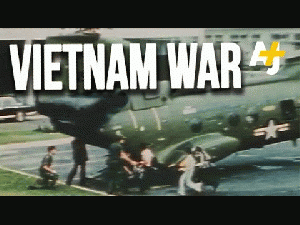Reprinted from Antiwar
Forty years after the fall of Saigon, Washington is still pursuing the same policies that led to the worst defeat in American military history. We never acknowledged, let alone learned, the lessons of that misconceived campaign to "roll back Communism" in Southeast Asia, thus setting ourselves up for endless repeats -- in Iraq, Afghanistan, and now, perhaps, Iran.
Just as today's "war on terrorism" is portrayed as a "generational" struggle against "radical Islam," so the Vietnam war was an episode in a cold war saga the end of which no one could see. The Soviet Union was presented as Satan with a sword, a mighty enemy sworn to our destruction, whose agents had subverted every country worth conquering and were homing in on the American homeland -- unless we acted to stop them.
The reality, however, was quite different. Soviet socialism had struggled to survive ever since the Bolsheviks seized power in a 1917 coup, and only endured World War II due to massive Western aid and US intervention in the conflict. Even before the end of the war, which decimated Russia, the Kremlin had been forced by necessity to make its accommodation with the West, formally giving up the much-cited Communist goal of a world revolution against capitalism in favor of "socialism in one country." Unable to feed its own people, let alone conquer the world, the ramshackle Soviet empire could hardly keep a hold on its eastern European satellites, facing rebellions in Hungary, Poland, and Czechoslovakia before the final implosion in 1989.
Such gains as the Soviets made were accomplished either with outright Western complicity -- Eastern Europe was handed over to "Uncle Joe" at Yalta -- or else due to the stubborn incompetence of the US and its allies. While what was then called the "Third World" was throwing off the chains of colonial rule, Washington sided with the colonialists -- in Vietnam, this meant the French, who were aided (in limited fashion) by Eisenhower. President Kennedy had none of his predecessor's caution, however, and he leaped into the fray, declaring we would "pay any price, bear any burden" in the struggle against the Communist Menace. His administration took the first step down that fateful road, supporting the unpopular and repressive South Vietnamese regime and sending in hundreds of US "advisers" -- who were soon doing much more than advising.
|
Rate It | View Ratings |
Justin Raimondo is the editorial director of Antiwar.com. He is the author of An Enemy of the State: The Life of Murray N. Rothbard (Prometheus Books, 2000), Reclaiming the American Right: The Lost Legacy of the Conservative Movement (ISI, (more...)

OpEdNews depends upon can't survive without your help.
If you value this article and the work of OpEdNews, please either Donate or Purchase a premium membership.
If you've enjoyed this, sign up for our daily or weekly newsletter to get lots of great progressive content.
To View Comments or Join the Conversation:





